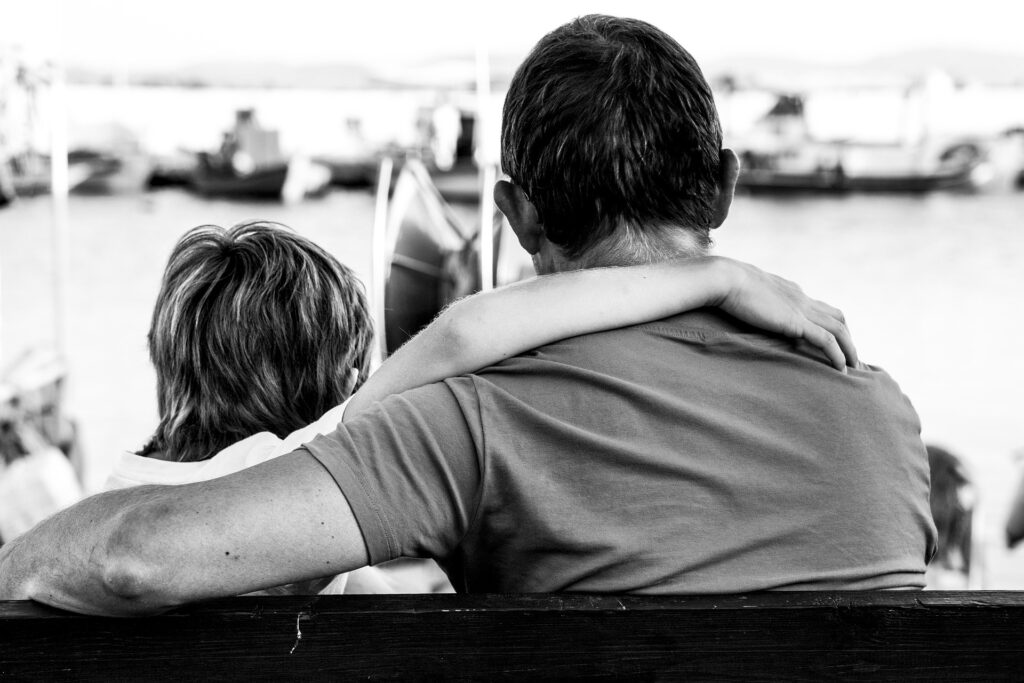Don’t Be Too Hard On Your Kids?
This narrative takes us back to a time when our fourth son was just 18 months old. My wife was now trying to wean him off breastfeeding entirely. Some days he seemed to cope well, while on others, he would just keep whining for his mother’s milk. To address this, we initiated “reality training,” aiming to help him understand that whining wouldn’t bring him closer to his desires; in fact, it would only push him further away. Coincidentally, we had just finished family dinner and were gathered around the table enjoying dessert, with my in-laws observing the entire scene. Their concern was palpable as they witnessed the unfolding situation. Eventually, my father-in-law could no longer contain himself and remarked, “You are too hard on your kids!” Meanwhile, my mother-in-law was visibly distressed, exclaiming, “You can’t do that!” My wife attempted to clarify our approach, but their anxiety lingered. After a period of tears, my son finally settled down. I scooped him up and carried him into the living room, where his face lit up with joy at being back in his mother’s embrace. Were we so hard on our son? It’s interesting to note that many parents we encounter often remark on how calm and well-behaved our children are. While they express admiration for their behavior, they frequently overlook the fact that this is the result of consistent training. Instead, they tend to assume that our children are simply born with good manners, leading them to believe that their own children cannot exhibit similar behavior due to a lack of inherent temperament. They often resign themselves to accepting their children’s behavior, hoping that, with time, they will naturally outgrow it, all while avoiding any actions that might provoke anger. However, how many parents can honestly admit that despite our best intentions to remain calm, we often find ourselves getting angrier at our children more often than not? Take, for instance, the moments when a child spills coffee, breaks a bowl, or has an accident. In those situations, it’s common for parents to feel a surge of frustration and even raise their voices. “What’s wrong with you?!”“How many times do I have to tell you not to touch it!”“What on earth are you doing?!” While parents may view these reactions as a temporary loss of temper, the reality is that such outbursts can lead to a child becoming increasingly introverted. Afterward, the parent may feel remorseful about their reaction and attempt to make amends by offering their favorite snacks or toys to cheer them up. I can’t help but wonder if this resonates with what’s happening in your household as you read this. It’s certainly something we experience from time to time in our own home. When we think about mistakes, how can a child truly grow up to be cheerful in an environment where mistakes are not accepted? In a nurturing home, mistakes should be embraced and tolerated, much like how our legal system often shows leniency in punishing errors. But what about our own homes? In many families, the situation is quite the opposite. When children fail to listen to their parents, it’s often brushed off as a mere temperament issue, even when their disobedience seems intentional. Teaching children appropriate behavior is not about their temperament; it’s a skill that everyone needs to learn especially in their homes from their parents. A child doesn’t naturally become an extrovert simply because they’ve been free from discipline. In reality, a child thrives when parents offer hugs, comfort, and reassurance, especially after making mistakes. However, in a home lacking discipline, every moment can feel like a test. When a child errs, they are often judged and scolded on the spot. For instance, a child who hasn’t learned to control their volume in public may yell freely, and if that behavior becomes too embarrassing, the parent will confront them immediately. “How many times have I told you not to yell?!” As a result, the child grows up without a sense of discipline, makes more frequent mistakes, and faces immediate negative judgment for those errors, leading to a loss of confidence. Ultimately, they may become introverted, fearful of making mistakes and judgments that follows. Discipline is not about getting angry at your children; in fact, if you get angry, that’s the end of discipline. You can discipline your children as much as you want without getting angry. You don’t even have to suppress their temperament, because discipline is not about dealing with their temperament, it’s about dealing with their attitudes and behaviors (inherent sinful nature of all mankind). And that discipline requires constant attention and patience on your part. What did I do when I walked into the room with my whimpering little baby? I hugged him and waited patiently for him to calm down and listen to his dad. To the child who was crying incessantly and insisting, I said in a soft voice, “If you cry, you can’t go to mommy. If you don’t cry, I’ll take you to mommy. I can’t help you if you keep whinning.” And I continued to talk to him kindly, which is what love does. When he seemed to stop crying, I would move closer to the door and pretend to open it, but if he started crying again, I would move away from the door again and tell him that if he stopped crying, he could meet with his mom again. We went back and forth in the room again and again. It was a physical reminder of reality. Through this process, he learned that there are things in this world that you can’t get even if you cry about it. All of our children go through “reality training”: whenever they fussed to their mom, their dad would take them to another room and calm them down til they are ready to accept the reality. We often reminisce about the early days of our “reality training” with our in-laws. Initially, they were skeptical, much

